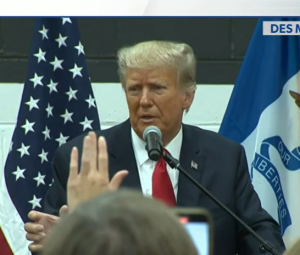Yvon Chouinard, the founder of Patagonia, has long built a company around doing the right thing. Numerous jackets were sold thanks to its well-known Don’t Buy This Jacket Black Friday 2011 commercial.
Business soared once again after the corporation sued then-president Donald Trump in 2017 to defend Utah’s national monuments.
In a 2018 GQ interview, he stated that “[The Black Friday ad] wasn’t a way to sell more product, even though, of course, that jacket sold like crazy. It’s kind of Zen. You do the right thing and good things happen.”
Also read: Elon Musk warns mass extinction: How true is billionaire’s prediction?
According to a New York Times report, in order to ensure that the company’s income will continue to benefit charitable organisations, he is now donating his entire stake (together with that of his family) to it.
What is Patagonia?
A proficient rock climber, Chouinard started his business Chouinard Equipment in 1957 and started selling hand-forged mountain climbing equipment. He sold his equipment by himself up until 1965, when he teamed up with Tom Frost to better his goods and deal with the escalating supply and demand problem he was facing.
Chouinard acquired rugby shirts from Scotland in 1970, which he used when climbing since the collar prevented his neck from being harmed by the climbing sling.
Also read: Grenada’s Simon Stiell picked as new UN climate chief
The first Patagonia store, Great Pacific Iron Works, debuted in Ventura’s former Hobson meat-packing facility on Santa Clara Street in 1973, not far from Chouinard’s blacksmith shop. Patagonia and Chouinard Equipment merged as Great Pacific Iron Works in 1981. Great Pacific Iron Works became Lost Arrow Corporation in 1984 thanks to Chouinard’s name change.
Patagonia has extended the number of items it offers by adding clothing for other sports, like surfing. They sell a variety of goods in addition to apparel, including sleeping bags, athletic gear, and backpacks.
Under the name Patagonia Provisions, the business expanded its product lineup in 2012.
Patagonia stated in April 2017 that customers can return items in excellent condition for credit toward new purchases. The used goods are fixed, cleaned, and then sold on the Worn Wear website. Worn Wear had sold more than 120,000 products as of April 2020. It introduced the ReCrafted initiative in 2019, which uses leftover fabric from worn Patagonia gear to make and sell garments.
Also read: US President Joe Biden touts inflation reduction law despite sobering report
It was announced by Patagonia in September 2020 that Ryan Gellert would succeed Rose Marcario as the company’s CEO.
The European Center for Constitutional and Human Rights accused Patagonia and other companies of profiting from the use of forced Uyghur labour in Xinjiang in a criminal case that was submitted to a Dutch court in December 2021.
In order to guarantee that Patagonia’s profits be used to combat climate change, Chouinard declared in 2022 that ownership of the company will be donated to a trust.
Patagonia views itself as an “activist company.” The business received praise in 2017 for its creative maternity and family leave programmes. However, a 2015 exposé in The Atlantic revealed that the corporate retailer was complicit in human trafficking through its supply chain.
Since 1985, Patagonia has donated 1% of its overall sales to environmental organisations through One Percent for the Planet, an initiative Yvon Chouinard helped found. In order to allow direct sales of pre-owned Patagonia apparel, the company introduced Common Threads Partnership in 2015.
Also read: Biden officials want to reverse some Trump offshore rollbacks
Patagonia promised to donate $10 million, or 100% of Black Friday sales, to environmental organisations in 2016. The business declared in June 2018 that it will give the $10 million it had been given as a result of President Trump’s tax cuts in 2017 to “groups committed to protecting air, land and water and finding solutions to the climate crisis.”
Patagonia attained Certified B Corporation status in 2012. After the California Corporations Code was updated and additional specified standards were established, the company became the first benefit corporation to be registered in the State of California.
By 2025, the company also wants to achieve carbon neutrality. Patagonia has started implementing a circular economy strategy in the creation of its products, including the creation of Worn Wear, where worn goods are resold.
Due to the fact that “adding an additional non-removable logo reduces the life span of a garment, often by a lot, for trivial reasons,” Patagonia stated in 2021 that it will stop producing its apparel with corporate logos affixed.
Also read: Judge restores oil lease on land sacred to Native American tribes in US, Canada
In response to the Utah state legislature’s presentation of legislation that would transfer federal lands to the state, Patagonia spearheaded a boycott of the Outdoor Retailer trade exhibition in February 2017.
This was because the event was historically held in Salt Lake City, Utah. Patagonia disagreed with Utah Governor Gary Herbert’s proposal that the recently established Bears Ears National Monument in southern Utah be revoked.
The event’s organiser, Emerald Expositions, announced that it would not accept Utah’s offer to maintain hosting the Outdoor Retailer trade show and would instead relocate the event to another state after a number of businesses joined the boycott led by Patagonia.
On December 6, 2017, Patagonia filed a lawsuit against the US government and President Donald Trump over his declarations that the Grand Staircase-Escalante National Monument and Bears Ears National Monument will each lose over 50% of their protected acreage.
Patagonia filed a lawsuit about how the U.S. Constitution’s Property Clause, which grants Congress control over federal lands, should be interpreted. Rose Marcario, the company’s then-CEO, argues that when Congress approved the Antiquities Act of 1906, it did not grant any president the authority to revoke a previous administration’s designations of monuments.
Also read: What Joe Biden’s visit to Ohio for the Intel factory launch means
Regarding Georgia’s voter registration rules, Patagonia made a $1 million donation to the activist organisations Black Voters Matter and the New Georgia Project on April 5, 2021.
Patagonia declared in 2021 that it will “not be bound by convention,” closing its retail locations and giving its staff a holiday break from December 25 to January 2.
In July 2020, Patagonia suspended its advertising on Facebook and Instagram, a photo-sharing app owned by Facebook. This action was taken as part of the Stop Hate for Profit campaign, which was started by some American civil rights organisations who felt that Facebook was doing insufficient to stop hate speech on its websites.







